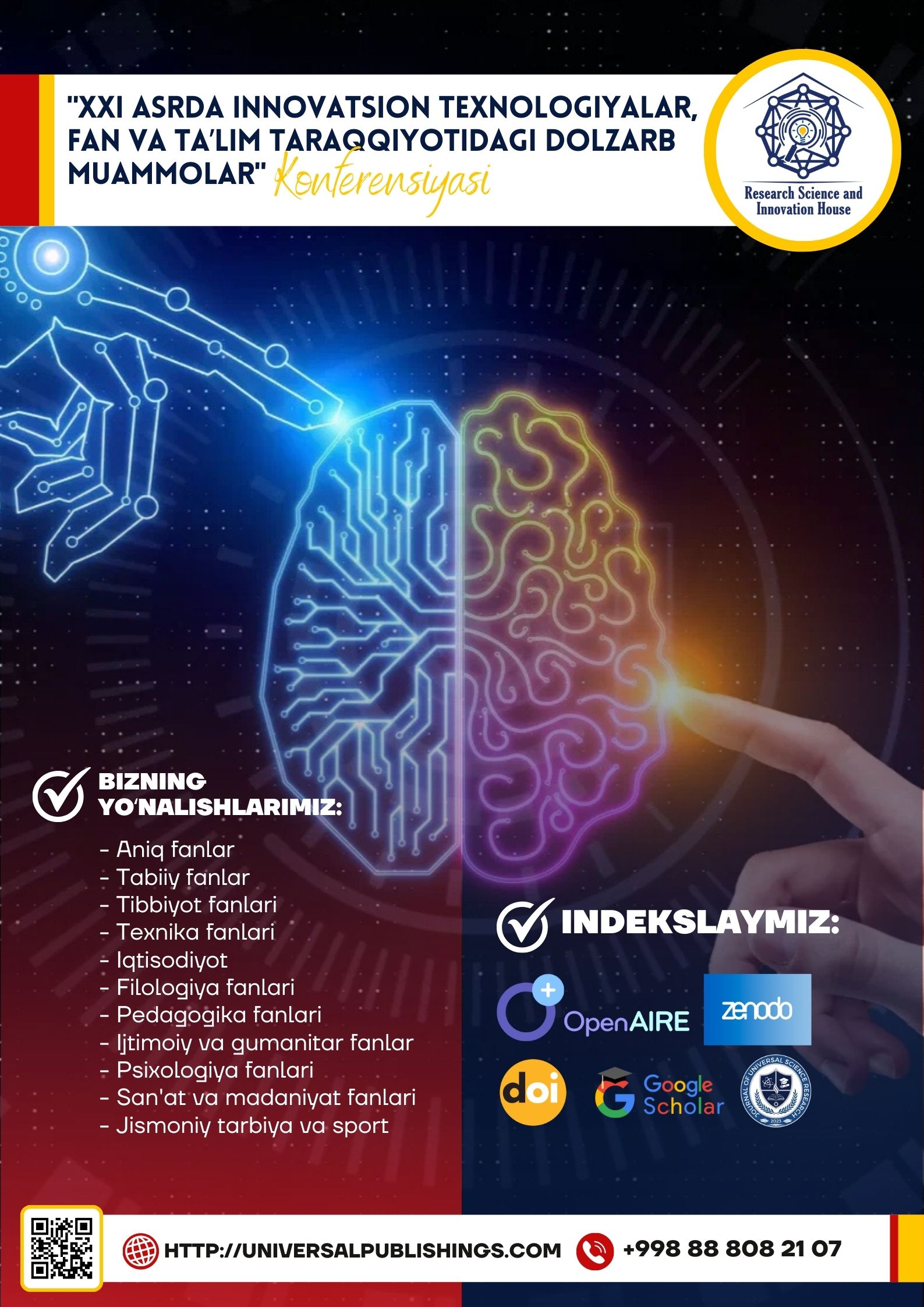Abstract
This article explores the creation and significance of four key types of
dictionaries: encyclopedic, etymological, spelling, and explanatory. It traces their
historical origins, development processes, and the roles they play in language and society. Encyclopedic dictionaries combine linguistic information with detailed knowledge on
various topics, serving as repositories of cultural and scientific data. Etymological
dictionaries reveal the historical evolution of words, while
References
1. Crystal, D. (2003). The Cambridge Encyclopedia of the English Language. Cambridge University Press. 2. Green, J. (2014). Chasing the Sun: The Epic Story of the Star that Gives Us Life. Harper. 3. Landau, S. I. (2001). Dictionaries: The Art and Craft of Lexicography. Cambridge
University Press. 4. McArthur, T. (1998). The Oxford Companion to the English Language. Oxford
University Press. 5. Millward, C. M., & Hayes, M. (2011). A Biography of the English Language. Wadsworth Publishing. 6. Mugglestone, L. (2011). The Oxford History of English Lexicography. Oxford
University Press. 7. Trask, R. L. (2000). The Dictionary of Historical and Comparative Linguistics. Routledge. 8. Tog’Ayev Sarvar Eshniyoz, O. G., & Fayzullayeva, U. (2023). Understanding
Postmodernism: Postmodern Culture and Philosophy. 9. Rakhmankulovna A. S. THE SYSTEM OF EDUCATING THE STUDENTS IN
VOCATIONAL EDUCATION //International Scientific and Current Research
Conferences. – 2023. – С. 123-126. 10. Sevara A., Muslima A. BEAUTY AND FASHION TRENDS
//ОБРАЗОВАНИЕ НАУКА И ИННОВАЦИОННЫЕ ИДЕИ В МИРЕ. – 2024. – Т. 36. – №. 3. – С. 72-76. 11. Rakhmankulovna A. S., Madina A. THE IMPORTANCE OF DEVELOPING
COMMUNICATIVE COMPETENCES IN PROFESSIONAL EDUCATION //Новости
образования: исследование в XXI веке. – 2024. – Т. 2. – №. 18. – С. 472-4

